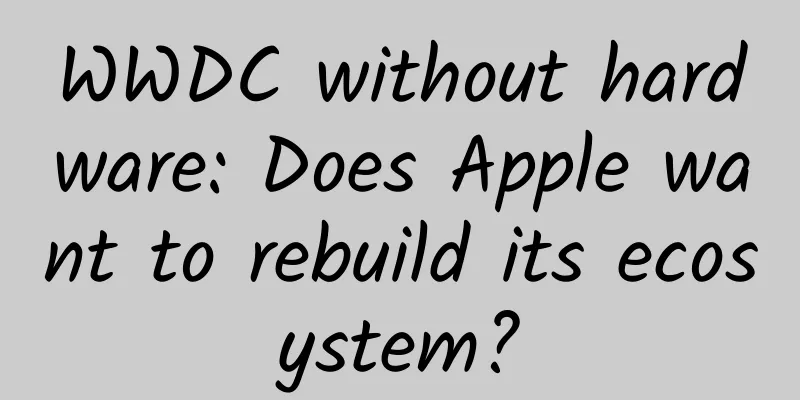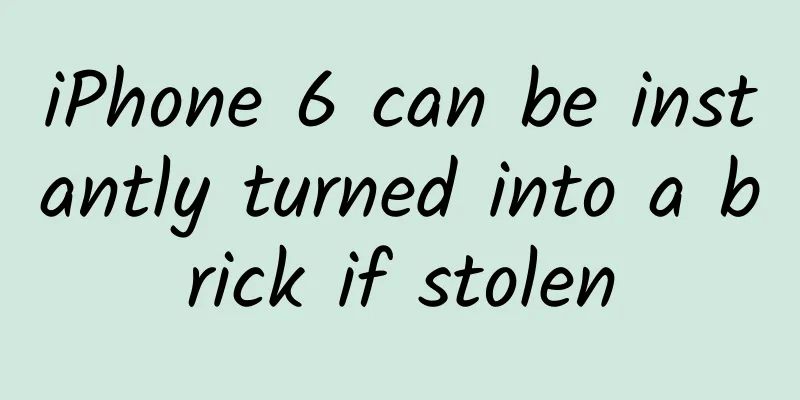WWDC without hardware: Does Apple want to rebuild its ecosystem?

|
Although Apple did not release any new hardware products at WWDC 2014, its new Mac operating system, OS X Yosemite, and its latest mobile device operating system, iOS 8, were both worthy of praise. The integration of iOS and OS X, the optimization and new release of iMessage, Family Sharing and HomeKit in iOS 8 all indicate that Apple is trying to change its extremely conservative software update status in the past. What Apple wants to do is to recreate an ecosystem and make its devices the hub connecting people's future digital lives. The two systems can interact Yosemite is a catchy American place name, and it is also the name of OS X 10.10. Hearing this name, you can imagine that this operating system must have some unexpected changes. For example, OS X Yosemite uses a new flat design similar to iOS 7, but its icons still retain a certain depth. Second, contacts have also been upgraded. Yosemite can match contacts in files and calendars, and can also search them. The third change is that Yosemite can realize the function of large attachments through Mail Drop, which supports up to 5GB of attachments. Large attachments can be downloaded directly through iCloud Drive. Fourth, the search function of the address bar of the upgraded Safari is more powerful, and through software optimization, the battery life on the MacBook Air can be extended by two hours. In addition, in the new OS X Yosemite, Apple has connected the AirDrop of iOS and OS X, allowing Apple users to quickly transfer files through AirDrop, and also view mobile phone text messages and answer/make calls on iPhone through Mac . It is understood that OS X Yosemite, which implements many of the above features, is still free and the developer preview version can be downloaded from the day of the conference. Breaking through the conservative iOS update The iOS 8, the mobile device operating system launched by Apple at this developer conference, has even more pleasing UI optimizations. In the new iOS 8, Apple redefined the Notification Center, and users can control it on the lock screen. For example, by double-clicking the Home button, you can display multitasking operations and frequently used contacts. At the same time, iOS 8 also added a new interactive notification center, which allows you to quickly reply to text messages on the lock screen. In the mail system of iOS 8, Apple also added gesture operations, and you can see more functions by sliding the mail to the right. In addition, the new iMessage can support group chats between multiple contacts, and can also send voice and short videos for free like WeChat . iOS 8 also provides a "Family Sharing" feature that supports six family members to share music, movies, photos, schedules, messages, etc. In addition, the Family Sharing feature can also control children's spending in the App Store. When children need to spend via credit card, parents will receive a permission notification and the transaction will be completed after approval. In terms of the smart home platform that has attracted much attention in the industry, Apple has released HomeKit. In fact, HomeKit is an open API that can integrate Siri's functions to automatically control the locks of doors and windows, adjust the light, and control doors, windows, lights and other devices. It is understood that among the home appliance manufacturers that currently support HomeKit, there are Philips and China's Haier. Interestingly, before actually introducing iOS 8, Cook unexpectedly took some time to mock its competitor, Google's Android operating system. "Last year, 130 million users bought their first iPhone, many of whom came from the Android camp. They accidentally bought the wrong phone in the past, but now they find a better experience," Cook said. "Among iPhone users in China, almost half came from Android." "89% of iPhone users have upgraded to the latest iOS 7 system, while only 9% of Android users have upgraded to the latest version. Many Android users are still using systems from four years ago," Cook said. Apple has sold more than 800 million iOS devices, including 100 million iPods, 200 million iPads, and 500 million iPhones. A smart home platform with hidden explosive power During a two-hour developer conference, Apple spent less than a minute introducing its smart home platform HomeKit, but that didn't overwhelm its value. It is not difficult to see that Apple will not participate in the design and manufacturing of every part of the smart home, but it hopes to be able to switch or otherwise control home appliances through various Apple devices. There is a view that for Apple, getting involved in the smart home field will play a positive role in promoting the sales of various Apple devices including iPhone, iPad, etc. More importantly, this strategy is "both a defense and an offense" for Apple, which can not only strengthen the existing ecosystem centered on iPhone, iPad, etc., but also encourage people to buy more Apple devices, making these devices the hub of people's digital life. Currently, Apple is working with third-party device manufacturers to produce certified products suitable for Apple's smart home platform. The release of Apple's smart home platform will inevitably lead to competition with Google, Samsung and other companies in the smart home field. It is understood that as early as three years ago, Google made a high-profile entry into the smart home field and gathered a group of developers to carry out a project called Android@Home. Later, Google spent a huge amount of US$3.2 billion to acquire the smart home company Nest to adjust its strategic direction in the smart home field. Apple has not spent much effort on its smart home platform, but its ambition in this field has not been concealed. Whether Apple can create another ecosystem in the future can be tested by the market. As a winner of Toutiao's Qingyun Plan and Baijiahao's Bai+ Plan, the 2019 Baidu Digital Author of the Year, the Baijiahao's Most Popular Author in the Technology Field, the 2019 Sogou Technology and Culture Author, and the 2021 Baijiahao Quarterly Influential Creator, he has won many awards, including the 2013 Sohu Best Industry Media Person, the 2015 China New Media Entrepreneurship Competition Beijing Third Place, the 2015 Guangmang Experience Award, the 2015 China New Media Entrepreneurship Competition Finals Third Place, and the 2018 Baidu Dynamic Annual Powerful Celebrity. |
<<: The establishment of the fourth operator of the State Grid may promote the development of 4K TV
>>: Google wants to enter the living room with Android TV, attracting competition from giants
Recommend
[2014 WOT Shenzhen Station Lecturer Interview] Tencent Zhang Dan: Mobile games will be further segmented
From November 21 to 22, 2014, the 2014 WOT Global...
We can generate electricity by relying on the rotation of the earth, and even make the earth rotate slower. Do you believe it?
Physicists have come up with an innovative idea -...
How much laughter and tears in the "Double Eleven" feast? ——Analysis of the "hidden rules" of e-commerce
Xinhua News Agency, Beijing, November 10 (Reporte...
Liu Jianlin: Make good use of these 5 partnership models so that employees can treat the store as their own
Liu Jianlin: Make good use of these 5 partnership...
If I have severe snoring, can I undergo surgery?
Clinically, there is an interesting phenomenon re...
What does it have to do with becoming ugly? This "chemical factory" in the human body really affects your appearance!
Many netizens wonder if their yellow or gray comp...
Liu Heng's "Name Studies" 81 Numerology Determines the Changes in Life
Introduction to the content of the training course...
Will a new round of Internet bubble come ten years later?
Alibaba 's initial public offering (IPO) will...
Travel App Competitive Analysis: How long will the social journey of travel apps last?
The outline of this article is as follows: 1. Pur...
4GB or 6GB? How much memory is enough for a mobile phone?
Before the advent of the smart system, mobile phon...
How to create an entry in Baidu Encyclopedia? How to edit it to pass?
What should I do if the entry creation in Baidu E...
Douyin has more than 150 million daily active users, but the war between short video platforms continues
Yesterday afternoon, Douyin short video announced...
Three years have passed, why are foldable phones still not popular?
At the beginning of this year, Huawei released a ...
After investing tens of millions, the secret of the advertising bidding mechanism turns out to be here!
On a media platform, there will be tens of thousa...
Toutiao, Weibo and other 20 new media operation guides
New media operation is a series of operational me...









